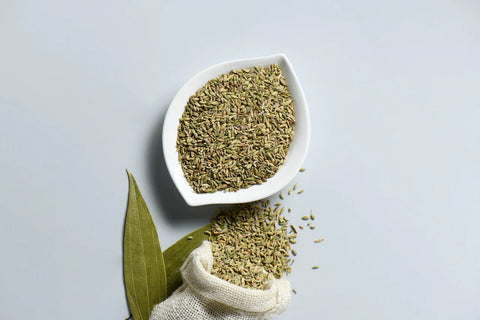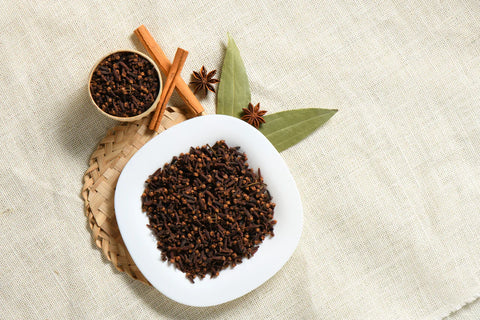Fennel seeds, small but brimming with flavor and history, have been cherished across the
globe for their unique taste and multitude of uses. Whether you’re a culinary enthusiast or just looking for natural ways to enhance your diet, fennel seeds offer a delightful
combination of flavor and nutrition. In this post, we’ll dive into the culinary uses, health
benefits, historical significance, and cultural importance of fennel seeds, as well as explore some tasty ways to incorporate them into your daily meals.
The History of Fennel Seeds
Originating from the Mediterranean region, fennel (Foeniculum vulgare) has been cultivated since ancient times. The Egyptians esteemed fennel not just for its culinary uses, but also for its symbolism of strength. Roman soldiers consumed fennel seeds for vitality during battles, and the seeds were often used in festive meals, representing abundance and celebration.
Throughout history, fennel has been an integral part of various culinary traditions. It found its way into Middle Eastern cuisines, where it became a staple in spice blends and
seasonings. In India, fennel seeds, known as "saunf," have been used in cooking as well as after meals for freshening breath and aiding digestion.
Culinary Uses of Fennel Seeds
Fennel seeds can elevate a wide range of dishes. Their sweet, anise-like flavor makes them versatile for both sweet and savory cooking. Here are some popular ways to incorporate fennel seeds into your diet:
Spice Blends: Fennel seeds are a common component in spice mixes like Italian sausage
seasoning, Indian panch phoron, and Chinese five-spice powder. They add depth and an
aromatic kick to various dishes.
Baked Goods: Incorporate ground fennel seeds into bread, cookies, or cakes for a unique flavor twist. Their sweetness pairs wonderfully with spices like cinnamon or ginger.
Soups and Stews: Adding whole fennel seeds to soups or stews enhances the overall
flavor, contributing a warm and slightly sweet note.
Vegetable Dishes: Try roasting vegetables with fennel seeds to highlight their natural
sweetness. They work particularly well with root vegetables like carrots and potatoes.
Infused Oils: Create a fennel-infused oil by gently heating olive oil with fennel seeds,
perfect for drizzling over salads or grilled meats.
Fennel Seeds Benefits
Fennel seeds are more than just a flavorful addition to your meals; they also offer several
health benefits, making them a popular choice for those interested in natural wellness:
Natural Digestive Aid: Fennel seeds are renowned for their ability to aid digestion.
Chewing on a teaspoon after meals can help reduce bloating and gas, providing relief from digestive discomfort.
Rich in Nutrients: These seeds are packed with essential nutrients like fiber, vitamins, and minerals. They are particularly high in antioxidants, which help combat free radicals in the body.
Anti-Inflammatory Properties: Fennel seeds contain compounds that have been shown to have anti-inflammatory effects, supporting overall health and well-being.
Traditional and Cultural Importance
In various cultures, fennel seeds symbolize hospitality and generosity. In Indian households, they are often served as a mouth freshener post-meal, reflecting their role in social gatherings and family bonding. Additionally, fennel seeds are associated with numerous folk remedies, showcasing their long-standing presence in traditional medicine.
Interesting Facts About Fennel Seeds
Versatile Use: Fennel seeds can be used whole or ground, but whole seeds retain their
potency longer and can be toasted for enhanced flavor.
Diverse Applications: Beyond cooking, fennel seeds are sometimes used to flavor certain liqueurs and beverages.
Symbol of Longevity: In various cultures, fennel is considered a symbol of longevity and
health.
Some Frequently Asked Questions
1. What do fennel seeds taste like?
Fennel seeds have a sweet, slightly licorice-like flavor with hints of anise. Their distinct taste can enhance both savory and sweet dishes.
2. How can I include fennel seeds in my diet?
Fennel seeds can be easily incorporated into your meals by adding them to spice blends,
soups, salads, baked goods, or using them in infused oils.
3. Are there any traditional uses for fennel seeds?
Yes, in many cultures, fennel seeds are served as a mouth freshener after meals and are
often included in festive dishes, symbolizing hospitality and shared joy.
Conclusion
Fennel seeds are a culinary treasure with a rich historical background and cultural
significance. Their versatility allows them to shine in a variety of dishes while providing
numerous health benefits. So whether you’re adding them to your favorite recipes or
enjoying them as a natural digestive aid, fennel seeds are a delightful way to enhance your culinary experience!











